Is your company customer-centric?
Your first impulse will probably be to say yes. Yes, it is. Of course it is. Your company works for the customer. Everything you do is for the customer and, well... without the customer, your company is nothing.
But is it really?
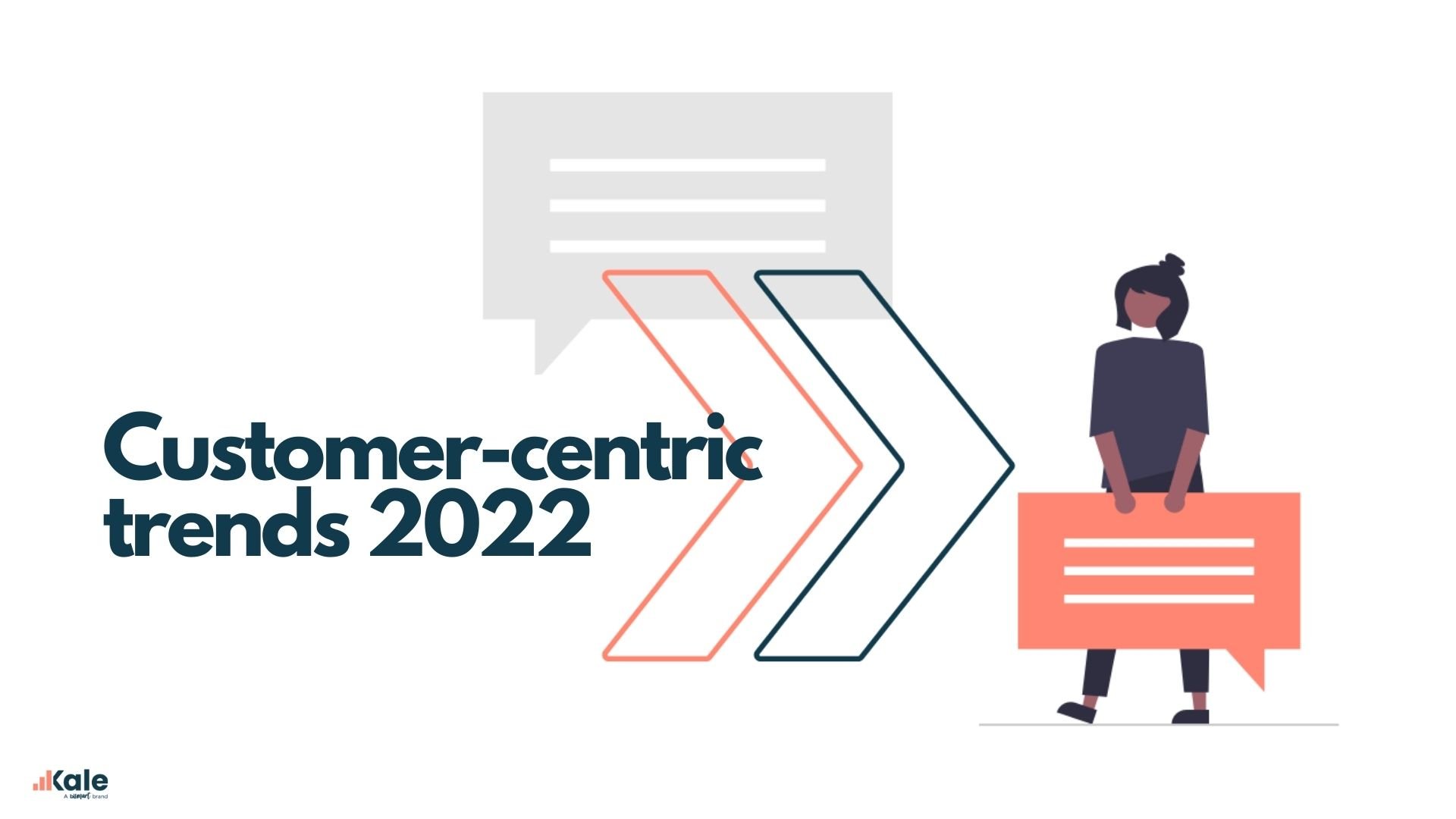
Becoming a customer-centric company is more than just a slogan. It starts with a deliberate effort to understand the customer and, in most cases, requires investments in technology, processes and people that work to meet customer's new needs.
Although customer-centricity comes from an idea —placing the customer at the core of the business activity—, in too many cases the idea remains just that, an idea. Any entrepreneur knows that, without action, ideas are not worth much and that transforming ideas into actions is the most difficult part.
That is exactly what is happening with customer-centricity. Most companies want to be customer-centric. Most are trying, and many will probably claim they are. However, being customer-centric is not just saying you are.
The truth is that, on too many occasions, data-driven transformation aimed at improving the customer experience is built on company-centric policies, without paying attention to new consumer habits or customer's expectations and behavior.
The result: Companies aspire to be customer-centric while building business models focused on the company's interests, hoping that, as always, the customer will be the one adapting to them.
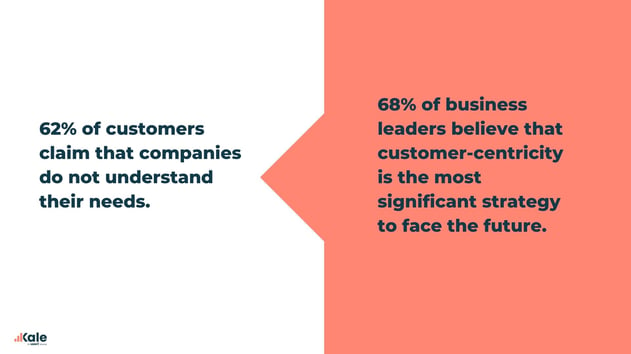
Do you really know your customers?
Making an effort to empathize with the customer is the first step to be a customer-centric company. Investing time, work and money in getting to know the customer is the second. The third, fourth and fifth won't make any sense until we are sure we know who our customers are, what they want, what they expect from us, what bothers them and how can we help them.
When was the last time you measured your customers' level of satisfaction? When was the last time you talked to them? Have you ever asked them what they would like you to improve?
According to Salesforce's latest report, State of the Connected Customer, which investigates the trends that will shape the future of the customer-business relationship, consumers are no longer satisfied with companies' promises to focus on them and are increasingly blurring the line between personal and business relationships, putting trust at the core of their business decisions.
Top 5 insights from the latest Salesforce report: Is your company customer-centric?
1. 88% of customers think trust is a must
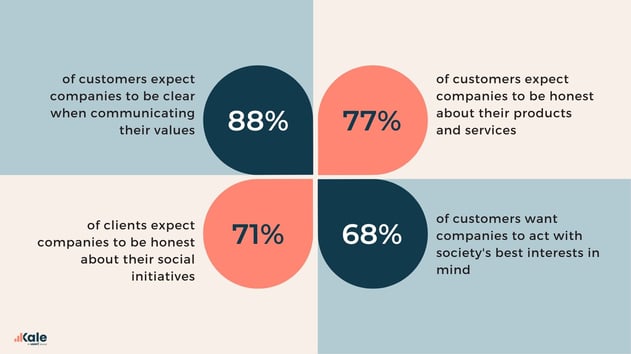
If there is one thing we can take from Salesforce's study, it is that business relationships built on trust are more important than ever. Today's clients care more than ever before about social responsibility, about being treated honestly and about companies' socio-economic impact. According to the report, 62% of customers are more likely to buy from brands with which they feel an emotional connection.
Customers care about social issues and expect companies to do the same. It is no accident that those companies that have stepped forward in favor of sustainable production, climate change or an ethical policy regarding the workers' treatment have grown like wildfire. 85% of the customers surveyed by Salesforce say that the way companies treat their employees has an impact on their purchases and 66% claim they have stopped buying from a company whose values do not align with theirs.
Some advice:
- Be honest about your company's values and back them up with actions that show that they are more than just words.
- Be transparent and talk about your internal routines: how employees are treated, how processes are conducted, where the materials used to manufacture products come from, etc.
- No one is perfect, but it's the thought that counts and customers know it. Create a long-term plan to improve the social impact of your business and spread the word.
- Communicate with the customer in an honest way. Forget misleading advertising and unreliable information.
2. Consumers want personalization to focus on their needs, not the company's
- 86% of consumers claim personalization influences their purchases and 31% prefer customized shopping experiences (Infosys).
Personalization is one of the most prominent digital marketing strategies of the moment. The vast majority of organizations are investing in creating personalized customer experiences. However, personalization strategies are at odds with customer's growing concern about how companies use their personal data.
Moreover, many organizations are developing personalization strategies that, again, focus on the business rather than the consumer. Figures indicate that customers are not against personalization and some even prefer it. However, in order to agree for companies to make use of their personal data, customers expect the personalization to benefit them, not just the companies.
3. Customers care more about the customer experience than they did before
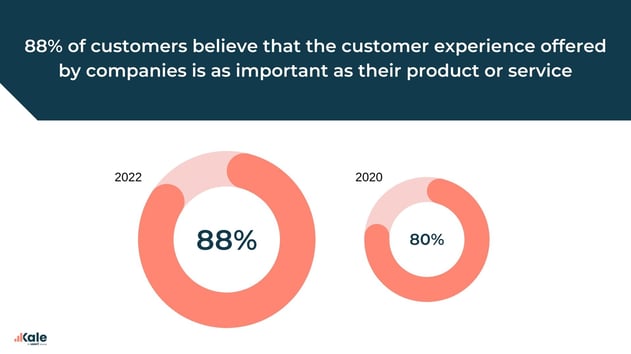 Customer experience is now more important than ever before. According to State of the Connected Customer, 88% of clients say that the experience a company offers them is as important as its products or services. In the 2020 report, only 80% agreed.
Customer experience is now more important than ever before. According to State of the Connected Customer, 88% of clients say that the experience a company offers them is as important as its products or services. In the 2020 report, only 80% agreed.
Far from being just another figure, this is actually major, especially if we stop to think about how many companies put as much effort into their customer experience as they do into the development of their products or services.
To create fulfilling customer experiences, not only do we need customer data, but the data must be integrated and transformed into actionable information that can be used to make improvements throughout the customer journey. According to a 2022 study by Gartner that explores the future impact of the Customer Data Platform (CDP), only 14% of companies have managed to obtain a 360º customer view.
- Find everything you need to know about Customer Data Platform (CDP) in our exclusive e-book "CDP: A Step Closer to Customer-Centricity".
4. Serve your customers the way you would like to be served
We have talked about knowing the customer, empathizing with the customer, being honest with the customer, providing a good customer experience and taking care of the customer. All of this is essential, and yet it can be broken in less than a minute. How? With bad customer service.
Despite being one of the most established touch points, customer service remains one of the most challenging points of the customer journey.
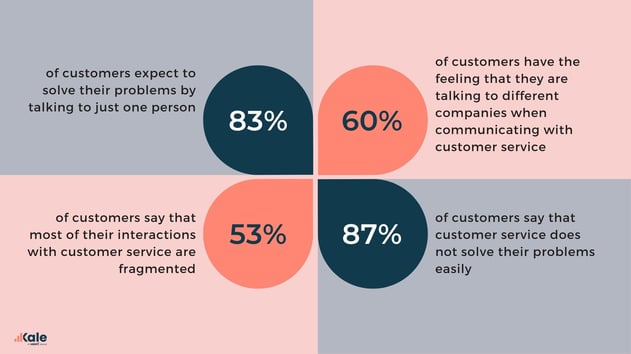 Companies poor dedication to provide a good customer service and solve clients' problems is, without a doubt, one of the things that most annoy and frustrate customers. They feel that, once they have made a purchase, their needs are forgotten.
Companies poor dedication to provide a good customer service and solve clients' problems is, without a doubt, one of the things that most annoy and frustrate customers. They feel that, once they have made a purchase, their needs are forgotten.
Don't want to lose customers? Make sure your customer service is efficient and responsive.
5. 71% of customers have switched brands in 2022
Customer loyalty is another key strategy for 2022. Salesforce reports that most customers do not hesitate to switch brands, confirming that they are becoming more demanding.
Ingredients such as loyalty programs, personalized attention or a real exchange of value with the customer has proven to be a successful recipe for avoiding customer churn.
In addition to being rewarded for their loyalty, customers expect brands to be commited to their concerns and worries.
At the end of the day, the relationship between a customer and a brand is a relationship. For any relationship to last over time, it is essential that both parties feel valued and cared for.
Time for your final answer: Is your company customer-centric?
After analyzing the 5 most important insights from the latest Salesforce report on customer-centric companies, it is time to answer the question that opened this article.
We have seen the difficulties that companies face in their attempt to be customer-centric and the difficulties that customers face in their efforts to have brands meet their expectations. We have also looked at some of the characteristics of companies that are really customer-centric.
The only thing left to do is to answer the question and, instead of crossing your fingers if the answer is not one you like, look for a solution.





